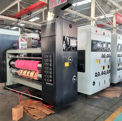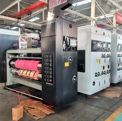
As a BMW owner, you're likely familiar with the ongoing debate: run-flat or tubeless tyres? This comprehensive guide will help you navigate the pros and cons of both options for your BMW tyres, ensuring you make an informed decision that suits your driving needs and preferences. We'll explore the key differences, safety features, performance aspects, and cost considerations to help you determine which tyre type is best for your beloved Bimmer.
What Are The Main Differences Between Run-Flat And Tubeless BMW Tyres?
Run-flat BMW tyres are designed to continue functioning for a limited distance after a puncture. Tubeless tyres, on the other hand, don't have an inner tube but rely on an airtight seal between the tyre and rim. Both have their unique advantages for BMW vehicles.
Why Do Some BMW Models Come Equipped With Run-Flat Tyres?
BMW often equips certain models with run-flat tyres for safety and convenience. These tyres allow you to continue driving for up to 50 miles after a puncture, giving you time to reach a service station. This feature can be particularly useful in areas with limited roadside assistance.
How Do Tubeless Tyres Compare To Run-Flats In Terms Of Performance?
Tubeless BMW tyres generally offer better performance in terms of ride comfort and handling. They tend to be lighter, which can improve fuel efficiency and reduce unsprung weight. However, run-flats provide peace of mind in case of a puncture during your journey.
Is The Cost Difference Significant Between Run-Flat And Tubeless BMW Tyres?
Run-flat BMW tyres are typically more expensive than their tubeless counterparts. This price difference is due to the advanced technology and materials used in run-flat construction. However, the added safety benefits may outweigh the cost for some BMW owners.
Can I Put Non-Run Flat Tyres On My Bmw?
Yes, you can put non-run flat tires on your BMW. Many BMW owners opt to replace run-flat tires with standard tubeless tires. While run-flat tires offer the convenience of continuing to drive on a flat tire, they often come with drawbacks like a harsher ride and higher costs.
Which Is Better Run-Flat Tyre Or Tubeless Tyre?
While BMW hasn't completely abandoned run-flat tires, there's been a growing trend towards offering standard tires with a mobility kit as an option. This shift is largely due to customer feedback favoring the improved ride comfort and cost-effectiveness of standard tires. However, the decision ultimately depends on individual preferences and driving conditions.
Why Has Bmw Stopped Using Run Flat Tyres?
BMW hasn't entirely stopped using run-flat tires. However, there has been a trend towards offering more models with standard tires and a mobility kit as an alternative. This shift is likely due to feedback from customers who prefer the ride comfort and cost-effectiveness of standard tires.
Does Bmw Recommend Run-Flat Tires?
BMW doesn't explicitly recommend one type of tire over the other. The choice between run-flat and standard tires ultimately depends on the individual driver's needs and preferences. If you value convenience and don't mind a potentially harsher ride, run-flat tires might be suitable. However, if you prioritize ride comfort and cost-effectiveness, standard tires with a mobility kit could be a better option.
Which Type Of Tyre Provides Better Fuel Efficiency For BMW Vehicles?
Tubeless BMW tyres often have a slight edge in fuel efficiency due to their lighter weight and lower rolling resistance. This can translate to marginally better fuel economy over time. However, the difference may be negligible for many drivers.
What Are The Safety Implications Of Choosing Between Run-Flat And Tubeless BMW Tyres?
Run-flat BMW tyres offer enhanced safety by allowing you to continue driving after a puncture, reducing the risk of being stranded. Tubeless tyres, while not offering this feature, can still provide excellent safety performance when properly maintained and monitored for pressure.
How Does The Ride Quality Differ Between Run-Flat And Tubeless BMW Tyres?
Many BMW drivers report a smoother, more comfortable ride with tubeless tyres. Run-flats tend to have stiffer sidewalls, which can result in a firmer ride. However, advancements in run-flat technology have improved ride quality in recent years.
Are Run-Flat BMW Tyres More Durable Than Tubeless Options?
Run-flat BMW tyres are designed to be more durable in the event of a puncture. However, in terms of overall lifespan, tubeless tyres can often match or exceed run-flats when properly maintained. Regular rotations and alignments are crucial for both types.
Which Tyre Type Is Easier To Repair Or Replace On A BMW?
Tubeless BMW tyres are generally easier and less expensive to repair or replace. Run-flats often require specialized equipment and expertise, which can limit your options for service and potentially increase costs.
How Do Weather Conditions Affect The Performance Of Run-Flat Vs. Tubeless BMW Tyres?
Both run-flat and tubeless BMW tyres can perform well in various weather conditions. However, tubeless tyres may offer slightly better traction in wet conditions due to their more flexible construction. Always choose tyres appropriate for your climate.
Frequently Asked Questions
What Is The Average Price Range For BMW Tyres?
BMW tyres prices typically range from $150 to $500 per tyre, depending on the model and size. High-performance or run-flat options may cost more.
Are BMW Run-Flat Tyres Worth The Extra Cost?
Run-flat tyres can be worth the investment for the added safety and convenience they provide. However, this depends on your driving habits and personal preferences.
How Often Should I Replace My BMW Tyres?
BMW tyres generally need replacement every 25,000 to 50,000 miles. Regular inspections and rotations can help extend tyre life.
Can I Switch From Run-Flat To Tubeless Tyres On My BMW?
Yes, you can switch from run-flat to tubeless tyres on most BMW models. However, consult with a BMW specialist to ensure compatibility.
Do BMW Tyres Require Special Maintenance?
BMW tyres don't require special maintenance beyond regular rotations, alignments, and pressure checks. Follow your vehicle's recommended maintenance schedule for optimal performance.
Conclusion:
When it comes to choosing between run-flat and tubeless tyres for your BMW, there's no one-size-fits-all answer. Run-flat tyres offer unparalleled safety and convenience in the event of a puncture, allowing you to continue driving to a safe location. However, they come at a higher cost and may compromise ride comfort. Tubeless tyres, on the other hand, provide better ride quality, fuel efficiency, and are generally less expensive, but they don't offer the same level of puncture protection.
Your decision should be based on your driving habits, local road conditions, and personal preferences. Consider factors such as your access to roadside assistance, the availability of tyre repair services in your area, and your comfort level with changing a tyre. Ultimately, both options can serve your BMW well when properly maintained. Whichever you choose, ensure you're selecting high-quality tyres that meet BMW's specifications for optimal performance and safety.
You Might Like Also

How Dubai’s Hot Climate Affects Your Car’s Wheel Alignment?

Top 10 Benefits of Choosing Bridgestone Tyres

Understanding Porsche Tyres Prices: What to Expect in 2024

How Can You Buy the Right Lexus Tires?

How To Find Best Tyre Shop Online In Dubai?

Why Are Audi Tires So Expensive?














